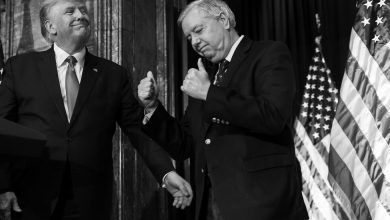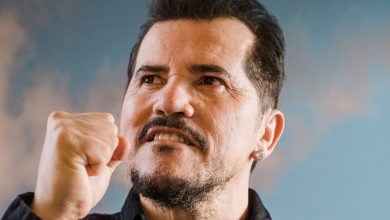I Represented Uvalde in Congress. We Must Act on Gun Violence.

Last month, a fourth-grade classroom in Uvalde, Texas, a small, quiet community that I represented in Congress, became a war zone. Nineteen beautiful, innocent children and two dedicated, brave teachers are gone forever because of a vicious massacre. It’s infuriating. It’s heartbreaking. It was preventable.
Since 2009, 1,565 Americans have been killed in mass shootings. That’s more than the number of U.S. military personnel killed in hostile action in Afghanistan over the same period. The names of Tulsa, Uvalde and Buffalo are added to those of El Paso, Sutherland Springs and Sandy Hook. More parents are going to have to suffer the unbearable burden of burying their own child.
Yet, neither horrifying headlines nor stunning statistics have generated substantial legislative action. This inaction has caused the public, the media, and some of those same elected officials to believe that nothing can be done. But that simply isn’t true.
There is not one piece of legislation that can prevent all mass shootings, but there are many things that we can do to save lives.
I believe in the plain language of the Second Amendment. In Congress I had an A rating with the National Rifle Association, and they supported my re-election campaigns. But while in Congress, I also met and learned from organizations like Everytown and Moms Demand Action, and was one of just eight Republicans to vote in favor of H.R. 8 — a bill requiring universal background checks. I also believe it’s ridiculous that any attempt to reform laws to keep lethal firearms out of irresponsible hands is met with outrage and stonewalling.
Removing access to guns won’t stop this epidemic, but as the tragedy in Uvalde proved, neither would a myopic and unyielding obsession with putting more guns into our schools. Any effective solution for mass shootings will require a multifaceted approach.
Researchers at the nonpartisan nonprofit The Violence Project have studied every mass shooting event in the United States since 1966. They have interviewed countless people connected to these events, to include many of the shooters. They found the same patterns time and time again in mass shooters: childhood trauma; a crisis point that pushes them over the edge; imitation of prior mass shooters and a scapegoat to blame; and the opportunity to carry out the attack.
At every level of society, we must take actions to address each one of these steps in the metamorphosis of a mass murderer. We must build stronger social safety nets in our communities and create accessible, high-quality mental health facilities throughout our country.
But we also must be prepared if our attempts are unsuccessful — and that means preventing potential mass shooters from getting access to weapons and victims. There is no single, simple policy fix. But there are multiple partial solutions that, together, can save lives.
Bills like H.R. 8 should be signed into law, and the age to purchase a high-caliber semiautomatic weapon that can hold a high-capacity magazine should be the same as it is to purchase a handgun. We must also build, at the federal level, on successes like Florida’s “Red Flag” law, that allow police officers and relatives to petition to temporarily confiscate firearms from individuals who may pose a danger.
Had H.R. 8 been signed into law, it would not have prevented the carnage in Uvalde — the murderer passed a background check. But it would have prevented other killings. Had the age to purchase a semiautomatic weapon been 21, it certainly wouldn’t have prevented Sandy Hook because the killer stole weapons, but it might have prevented Uvalde.
Careful, well-designed policy may not win headlines or make good fodder for campaign spots. But we know that it can save lives. And we know that real legislative solutions can pass in Washington. Following Sutherland Springs, a bipartisan bill was passed by Congress called “Fix NICS.” When this piece of legislation was signed into law, it updated the database that’s searched every time a background check is performed with more than six million additional records. This vastly improved our ability to stop the wrong people from buying guns.
We also must be prepared in case guns do find their way into the wrong hands. We need to protect our most vulnerable places, like schools, churches, and hospitals. We need to ensure local law enforcement is trained in the most effective ways of dealing with mass shooters.
We are not helpless, and if the people we elect to address our country’s tough challenges think nothing can or should be done beyond thoughts, prayers and complaining about the filibuster, then it’s time we help them find a new career.
These ideas aren’t new, but for any fixes to become law, we need to agree that the situation we find ourselves in — our supermarkets, schools and hospitals becoming battlefields — is a national emergency.
Mass shootings don’t have to be a fact of life. They are preventable. However, we can’t retreat to our political corners and repeat the same tired talking points. We are going to have to work with people we disagree with and in many cases don’t even like, and we are going to have to adopt solutions that some of our traditional constituencies may not like. We must do this to stop our moms and dads from receiving a phone call no parent should ever have to get and to prevent our children from living in fear.
Will Hurd, a Republican, represented Texas’ 23rd District in the U.S. House of Representatives from 2015 to 2021. He is the author of American Reboot: An Idealist’s Guide to Getting Big Things Done.
The Times is committed to publishing a diversity of letters to the editor. We’d like to hear what you think about this or any of our articles. Here are some tips. And here’s our email: [email protected].
Follow The New York Times Opinion section on Facebook, Twitter (@NYTopinion) and Instagram.





